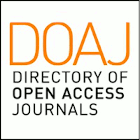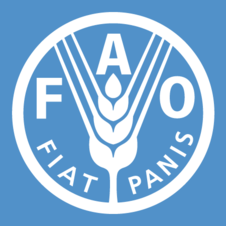Intervención nutricional con omega-3 en un grupo de pacientes con diagnóstico de Trastorno del Espectro Autista (TEA).
DOI:
https://doi.org/10.29105/respyn17.4-3Keywords:
Trastorno del Espectro Autista, Gluten, Caseína, Omega-3Abstract
Introducción: El trastorno del espectro autista afecta la interacción social, y la conducta. Diversos estudios describen una variedad de terapias entre ellas la dieta sin gluten y caseína y la suplementación con ácidos grasos omega-3. Objetivo: Evaluar el efecto de una dieta sin gluten y caseína, suplementada con ácidos grasos omega-3 en el Trastorno del Espectro Autista. Materiales y Métodos: Estudio experimental controlado no aleatorio realizado durante ocho semanas valorando 15 sujetos en un rango de edad de 3-12 años se realizó evaluación nutricional y la escala de CARS al inicio y final del estudio, se dividieron en tres grupos, grupo A: dieta sin gluten y caseína, grupo B: dieta sin gluten y caseína más suplementación con omega-3 en una dosis de 1.2g/d y grupo C: control sin dieta y sin suplementación. Realizando análisis estadístico con el programaestadístico MEDCALC®.Resultados:Del total de 15 sujetos el 20 % pertenecía al género femenino mientras que el 80 % al sexo masculino con una media de edad de 7 años. Al comparar el comportamiento se observó una diferencia significativa (p=0.0006) en el grupo B.Conclusiones: La dieta sin gluten y caseína y los con ácidos grasos omega-3 puede ser una terapia nutricional efectiva para mejorar el comportamiento.
Downloads
References
Amminger, P. G., Berger, G. E., Schäfer, M. R., Klier, C., Friedrich, M. H., & Feucht, M. (2007). Omega-3 Fatty Acids Supplementation in Children with Autism: A Double-blind Randomized, Placebo-controlled Pilot Study. Biol Psychiatry , 551–553. DOI: https://doi.org/10.1016/j.biopsych.2006.05.007
Belmaker, R. H., & Meiri, G. (2014). Omega-3 Fatty Acids in the Treatment of Autism Spectrum Disorder. En V. Patel, Comprehensive Guide to Autism (págs. 2427-2433). Nueva York: Springer Science+Business. DOI: https://doi.org/10.1007/978-1-4614-4788-7_148
Bent, S., Bertoglio, K., Ashwood, P., Bostrom, A., & Hendren, R. L. (2011). A Pilot Randomized Controlled Trial of Omega-3 Fatty Acids for Autism Spectrum Disorder. Journal of Autism and Developmental Disorders, 545-554. DOI: https://doi.org/10.1007/s10803-010-1078-8
Harrison Elder, J., Shankar, M., Shuster, J., Theriaque, D., Burns, S., & Sherrill, L. (2006). ThGluten-Free, Casein-Free Diet In Autism: Results of A Preliminary Double Blind Clinical Trial. Journal of Autism and Developmental Disorders, 413-20.
Hajar et al (2017) Relationship between Long Chain n-3 Polyunsaturated Fatty Acids and Autism Spectrum Disorder: Systematic Review and Meta-Analysis of Case-Control and Randomised Controlled Trials. Nutrients 9(155) 1-32.
Harris C. A pilot study to evaluate nutritional influences on gastrointestinal symptoms and behavior patterns in children with Autism Spectrum Disorder. Complementary Therapies in Medicine (2012) 20, 437—440 DOI: https://doi.org/10.1016/j.ctim.2012.08.004
Harrison Elder, J., Shankar, M., Shuster, J., Theriaque, D., Burns, S., & Sherrill, L. (2006). ThGluten-Free, Casein-Free Diet In Autism: Results of A Preliminary Double Blind Clinical Trial. Journal of Autism and Developmental Disorders, 413-20. DOI: https://doi.org/10.1007/s10803-006-0079-0
James, S., Montgomery, P., & Williams, K. (2011). Omega-3 fatty acids supplementation for autism spectrum disorders (ASD). Cochrane Database of Systematic Reviews , 1-24. DOI: https://doi.org/10.1002/14651858.CD007992.pub2
Mankad, D., Dupuis, A., Smile, S., Roberts, W., Brian, J., Lui, T., Anagnostou, E. (2015). A randomized, placebo controlled trial of omega-3 fatty acids in the treatment of young children with autism. BioMed Central, 6-18. DOI: https://doi.org/10.1186/s13229-015-0010-7
Marí-Bauset, S., Zazpe, I., Mari-Sanchis, A., Llopis-González, A., & Suárez-Varela, M. (2014). Evidence of the gluten free and casein free diet in autism spectrum disorders (ASDs): a systematic review. Journal of child neurology, 1-10. DOI: https://doi.org/10.1177/0883073814531330
Mazahery, H., Stonehouse, W., Delshad , M., Kruger, M., Conlon, C., Beck, K., et al. (2017). Relationship between Long Chain n-3 Polyunsaturated Fatty Acids and Autism Spectrum Disorder: Systematic Review and Meta-Analysis of Case-Control and Randomised Controlled Trials. Nutrients , 1-32. DOI: https://doi.org/10.3390/nu9020155
Millward, C., Ferriter, M., Calver, S. J., & Connell-Jones, G. G. (2014). Gluten- and casein-free diets for autistic spectrum disorder. Europe PMC Funders Group, 2-29.
Politi, P., Cena, H., & Emanuele, E. (2011). Dietary Supplementation of Omega-3 Polyunsaturated Fatty Acids in Autism. In V. Preedy, Handbook of Behavior, Food and Nutrition (pp. 1787-1796). Springer Science+Business. DOI: https://doi.org/10.1007/978-0-387-92271-3_116
Seunget al(2007) The Gluten-and Casein-Free Diet and Autism: Communication Outcomes From a Preliminary Double-Blind Clinical Trial Journal of medical speech-language pathology 15(4) 337-345.
Schopler, E., Reichler, R. J., DeVellis, R. F., & Daly, K. (1980). Toward Objective Classification of Childhood Autism: Childhood Autism Rating Scale (CARS). Journal of Autism and Developmental Disorders , 92-103. DOI: https://doi.org/10.1037/t49458-000
Downloads
Published
How to Cite
Issue
Section
License
The rights of the work belong to the author or authors, however, by sending it for publication in the Public Health and Nutrition Magazine of the Faculty of Public Health and Nutrition of the Autonomous University of Nuevo León, they grant the right for its first publication in between electronic, and possibly, in print to the Public Health and Nutrition Magazine. The license used is the Creative Commons attribution, which allows third parties to use what is published whenever the authorship of the work is mentioned and the first publication that is in the Public Health and Nutrition Magazine. Likewise, the author or authors will take into account that it will not be allowed to send the publication to any other journal, regardless of the format. The authors will be able to make other independent and additional contractual agreements for the non-exclusive distribution of the version of the article published in the Public Health and Nutrition Magazine (e.g., institutional repository or publication in a book) provided they clearly state that The work was published for the first time in the Public Health Magazine, Magazine of the Faculty of Public Health and Nutrition of the Autonomous University of Nuevo León.














